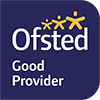British values
Mountbatten Primary School has a guiding vision, which ensures that the school is a safe and happy place to be for everyone associated with the school as a pupil, a member of staff, parent, governor and visitor. Our vision encapsulates the ethos and values of Mountbatten Primary School. These are British Values.
“To be the best that we can be!”
The Department for Education states that there is a need:
“To create and enforce a clear and rigorous expectation on all schools to promote the fundamental British values of democracy, the rule of law, individual liberty and mutual respect and tolerance of those with different faiths and beliefs.”
The Department of Education defines British Values as follows:
Our school reflects British values in all that we do. We aim to nurture our children on their journey through life so they can grow into safe, caring, democratic, responsible and tolerant adults who make a positive difference to British society and to the world.
We encourage our children to be creative, unique, open-minded and independent individuals, respectful of themselves and of others in our school, our local community and the wider world.
Democracy
Rule of Law
Liberty
Respect
Charity
One aspect of British values which the Department for Education does not mention but which we believe is a central British value is that of charity.
Rythm of the year
Britain is a nation of traditions but also of great creativity, entrepreneurial acumen and inventiveness.
There is a national rhythm and we try to reflect this in the school year. There are events and activities which are a constant and which the children look forward to and expect.
They are a reflection of National life, which bonds society together. The school community is bonded by similar traditions and is reflected by a similar sharing and coming together.
Our British Values Policy can be downloaded here:

“Children start to learn to read as soon as they enter the school.”

“There are a wide range of school clubs.”

“Pupils learn how to keep safe when using the internet.”

“Adults help pupils who fall behind.”

“The early years environment is inviting and well organised.”

“Staff encourage
pupils to be independent from an early age.”

“Teachers check what pupils have learned and remembered each term.”

” Some teachers check carefully to find out which pupils are stuck and which pupils need further challenge during lessons.”

“Pupils say that behaviour is good.”

“There is a strong team culture within the school.”

“Teachers who are new to the school welcome the support they receive.”

“Subject leaders are knowledgeable about their subjects.”

“Staff welcome the highquality training they receive. They feel proud to work in the school.”

“Leaders and teachers make regular checks to see how well pupils with special educational needs and/or disabilities (SEND) are doing.”

“Leaders work well
with members of the multi-academy trust to support staff.”

“The school enjoyed recent success when the computing club won a local area competition using their coding skills.”

“Pupils support each other well when they are completing their work.”

“The ‘Mountbatten 50’ challenges pupils to complete a range of interesting activities
before they leave the school.”

“There is a clear focus on the teaching of early mathematics and reading.”

“There are respectful relationships between adults and pupils.”

“Pupils enjoy attending school.”

“Pupils enjoy learning about a wide range of subjects.”

“Pupils access a range of visits and activities beyond their own experiences.”

“Staff work closely with professionals from external agencies to provide support for pupils with SEND.”

“Pupils say they feel safe in school.”

“Curriculum plans are well sequenced.”

“Leaders have thought carefully about the curriculum plans they have introduced.”

“Staff are well trained in teaching children to read.”

“The school is calm and orderly. Pupils walk around school sensibly and are courteous to one another.”

“Pupils listen carefully to what adults say. They join in class discussions enthusiastically.”

“Children settle into school quickly.”

“Leaders have considered what pupils might need to know to broaden their understanding of the world around them.”

“Teachers appreciate the support they receive from subject leaders to help them improve their teaching.”

“Pupils recommend the school to their friends.”

“The residential visit to Robinwood encourages pupils to experience new challenges and work collaboratively with their friends.”

“Senior leaders, alongside the multi-academy trust, have provided subject leaders with training.”



